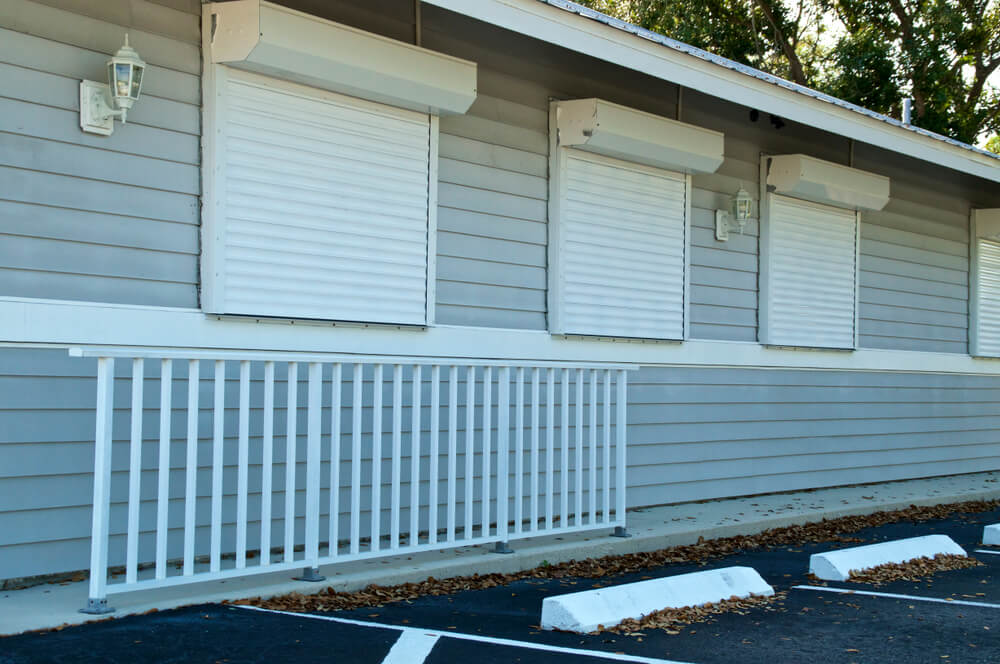
Preparing for Hurricane Season
The glorious sun, white sand and soft ocean breeze, these are just some of the benefits of living along a coastline. However, anyone who has a home close to the ocean will probably tell you the greatest drawback of this type of lifestyle begins on June 1st , the official start of the Atlantic hurricane season or May 1st for the Pacific. If you’ve never experienced a tropical storm then the idea of preparing for a hurricane that hasn’t even formed seems rather farfetched.
You might question the need to buy bottled water or install hurricane shutters when uninterrupted sun is forecasted for the next six weeks. Yet, ask anyone that has survived such a storm and they’ll tell you can never be too prepared for one.
Here you can find all the steps you need to take to prepare ahead of the storm and protect your home or business from damage during the hurricane season.
How to Prepare for Hurricane Season and Tropical Storms Efficiently Step by Step
1. Plan an Evacuation Route
The number one item on a hurricane preparedness list is evacuation planning. A storm surge or an abnormal rise in water levels generated by a hurricane is the main reason people are forced to leave their homes. Water levels can reach heights of well over 20ft and can span hundreds of miles of the coastline.
It’s important you learn whether or not you live in an evacuation area (that is a region where residents must leave their homes in the event of a tropical storm). If you do, become familiar with the route that you must take by car to get out as well as where the nearest shelters are located.
Don’t wait until a hurricane has made landfall and a storm watch or warning has been issued to determine how to get out of your neighborhood.
2. Practice the Escape Plan With Your Family
Make sure your family are all familiar with the emergency plan and everything you need to do to safely evacuate on time when an evacuation order is issued.
This includes from knowing where the supplies are kept to making a ‘trial’ evacuation exercise.
3. Purchase Emergency Supplies in Advance
Purchasing supplies is one of the most important things you can do to prepare yourself for a hurricane. Some of the items that emergency preparedness experts advise you to have are:
- Bottled water
- Canned food
- First aid supplies
- Prescription drugs
- Blankets
- Flashlight
- Batteries
Make sure you buy these in advance of the storm if you want to avoid being stuck in long lineups or find yourself in stores that are out of what you need most.
It’s also important to keep these supplies packed, separate from the rest of your household goods, and kept in a place where they are easily accessible. These provisions are designed to be used only in case of an emergency.
Remember to check with your local police or fire department to learn exactly what type of hurricane supplies you should have and how much. Some areas require more supplies than others.
4. Maintain Your Car and Fill It Up With Fuel
Inspect your car and repair anything that needs to be fixed ahead of the hurricane season.
Also, don’t wait until the storm hits to fill up your car’s tank; chances are by that time most of the gas stations will have run out of fuel.
5. Don’t Forget Your Pets
Include your pets in your evacuation plan. Make sure you have enough provisions for them as well, including water, food, and any drugs they might take on a regular basis.
6. Check with Insurance
A phone call to your home and auto insurance agency should be made at the start of the season. Do not wait until your area is under a hurricane watch to make that important phone call.
Get all of your insurance papers together in one folder or envelope and make sure you save electronic copies as well. You also want to have official documents that indicate proof of ownership of your home, cars, and even boats.
If your home or any of your personal property is damaged during the storm, in order for you to claim any type of benefits or compensation you need to prove you owned it!
7. Inspect Your Property for Damages that Need Repairs
Before the official start of hurricane season, it’s important to have your home inspected to confirm there is no damage that a storm could make worse. That might mean something as big as replacing your roof or as small as securing loose shingles.
8. Install Hurricane Shutters
Another part of the home that is extremely vulnerable during a storm is the windows. This is the time to consider purchasing heavy-duty hurricane shutters that are designed to withstand high winds, protect your windows from shattering, reduce storm impact, and increase security, among other benefits.
Storm shutters come in different types and costs. However, it’s important you invest in customized hurricane shutters that are professionally installed in order to effectively protect your home from storm-force winds. In fact many insurance companies will not cover homes that don’t have storm shutters hung by certified people.
9. Hurricane-Proof Your Exterior
This step includes everything from trimming the trees to making your patio or garden hurricane-proof by securing loose objects like patio furniture, plant pots, garden decorations, and anything that can cause damage to your property when hurricane-force winds start blowing.
Prepare Your Home or Business Before the Hurricane Season Starts
If you’ve just moved to an area of the country that is vulnerable to hurricanes you’ll quickly learn that it helps to always be prepared. Regardless if it’s tropical storm season or not, it’s important to keep your eyes and ears open at all times.
Ask neighbors, friends or even co-workers about their own storm experiences and the advice they would give about getting ready and knowing what to do when the storm arrives.
Rollac SecuraMax hurricane shutters are designed to offer maximum protection to your home or business. Get in touch with us today.
